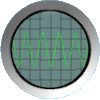| View previous topic :: View next topic |
| Author |
Message |
Glenn Moore
Been Here Awhile

Joined: 24 Jan 2005
Posts: 241
|
 Posted: Sun Apr 11, 2010 3:21 pm Post subject: Avalon 737sp settings Posted: Sun Apr 11, 2010 3:21 pm Post subject: Avalon 737sp settings |
 |
|
Looking for someone who might be willing to share their settings if you have an Avalon 737sp. I use a Sennheiser MKH 416 shotgun and a Neumnan TLM 103. Please send me a private message if you're able to. Thanks!
Glenn |
|
| Back to top |
|
 |
Mike Sommer
A Hundred Dozen

Joined: 05 May 2008
Posts: 1222
Location: Boss Angeles
|
 Posted: Sun Apr 11, 2010 5:30 pm Post subject: Posted: Sun Apr 11, 2010 5:30 pm Post subject: |
 |
|
Well, the 737 is basically a full on channel strip with preamp, compression and EQ in a single box. If what you're asking is "How do I use it?", you maybe in way over your head. But ok there is always time to learn.
1. Don't over drive the preamp, keep it at 0.
2. Set the input to Mic.
3. Set the attack to it's fastest setting for this unit this is 2ms
4. Set release to it's fastest setting- for this unit it is 100ms. If it sounds unnatural, set a little slower.
5. Threshold around -15db to-21db is good.
6. Set Ratio to 2 (1= 1:1, 2= 2:1, 3= 3:1 etc..)
7. Use the highpass filter on the preamp side to get rid of low-end garbage. Set at about 75 Hz, so the compressor does not pump. (don't go higher than 80Hz)
8. Use the EQ sparingly. Although it's a great sounding EQ, once you record it, there's no undoing it. So add a touch in any band you feel needs some. The only thing you should really need to play with is the HIGH MID. Depending on the mic, you and your room. The most you will ever need is maybe a 2 to 3 db bump anywhere between 1kHz to 5kHz. (Give the mid a 2db boost, turn the Frequency knob until your voice has a nice presence, then you can reduce the boost a little or add more boost. You don't want it to sound unnatural, you just want your voice to sound clean and present. With the 416 you may not need any adjustment at all. except for REDUCTION. Which means turning the gain setting into the negative.) Going into the "Q" section maybe to much to deal with here but once you find your general settings you can then play with it later. But you'll probably find the broadband setting more useful.
9. Find a good balance between the input gain on the pre and the output gain to get a good level, so that it is not clipping into your program. You'll find the input gain "colors" the sound more than the output gain so use it to your liking.
These are general setting. It's all about finding what sounds good for you. Sometimes it all blurs into one big mess, and in the end you'll find you didn't really need any adjustments at all.
_________________
The Blog:
http://voiceoveraudio.blogspot.com/
Acoustics are counter-intuitive. If one thing is certain about acoustics, it is that if anything seems obvious it is probably wrong. |
|
| Back to top |
|
 |
kgenus
Seriously Devoted

Joined: 01 Dec 2004
Posts: 889
Location: Greater NYC Area
|
 Posted: Sun Apr 11, 2010 6:58 pm Post subject: Posted: Sun Apr 11, 2010 6:58 pm Post subject: |
 |
|
Avalon 737
1. Set Preamp Gain between 0. (adjust accordingly)
2. Set Input to Mic.
3. Set High Gain to On.
4. Set Output to 0. (adjust accordingly)
5. Engage Phantom Power.
EQ and Compression are quite subjective. Go with your gut but remember many producers want something dry, not something that sounds good to you. Some may send you specifics, but if you go dry, you're 100% better off.
_________________
Genus |
|
| Back to top |
|
 |
JTVG
Backstage Pass
Joined: 21 Jun 2007
Posts: 433
|
 Posted: Sun Apr 11, 2010 9:07 pm Post subject: Posted: Sun Apr 11, 2010 9:07 pm Post subject: |
 |
|
And if you have kids, do yourself a favor and write down the settings somewhere once you find your sweet spot.
_________________
Joe Szymanski
http://www.joethevoiceguy.com |
|
| Back to top |
|
 |
Philip Banks
Je Ne Sais Quoi

Joined: 20 Jun 2005
Posts: 11083
Location: Portgordon, Scotland
|
 Posted: Mon Apr 12, 2010 1:16 am Post subject: Posted: Mon Apr 12, 2010 1:16 am Post subject: |
 |
|
| For most jobs and for most preamps the best setting is BYPASS. For more details see Kevin's post above. |
|
| Back to top |
|
 |
kgenus
Seriously Devoted

Joined: 01 Dec 2004
Posts: 889
Location: Greater NYC Area
|
 Posted: Mon Apr 12, 2010 6:49 am Post subject: Posted: Mon Apr 12, 2010 6:49 am Post subject: |
 |
|
| JTVG wrote: | | And if you have kids, do yourself a favor and write down the settings somewhere once you find your sweet spot. |
THIS SITE is a collection of RECALL SHEETS, manuals and links to manufacturers.
_________________
Genus |
|
| Back to top |
|
 |
Rob Ellis
M&M

Joined: 01 Aug 2006
Posts: 2385
Location: Detroit
|
 Posted: Mon Apr 12, 2010 7:01 am Post subject: Posted: Mon Apr 12, 2010 7:01 am Post subject: |
 |
|
Kevin Genus wrote:
| Quote: | Avalon 737
1. Set Preamp Gain between 0. (adjust accordingly)
2. Set Input to Mic.
3. Set High Gain to On.
4. Set Output to 0. (adjust accordingly)
5. Engage Phantom Power. |
Kevin,
Do you use the Highpass Filter? |
|
| Back to top |
|
 |
kgenus
Seriously Devoted

Joined: 01 Dec 2004
Posts: 889
Location: Greater NYC Area
|
 Posted: Mon Apr 12, 2010 7:09 am Post subject: Posted: Mon Apr 12, 2010 7:09 am Post subject: |
 |
|
Nope.
_________________
Genus |
|
| Back to top |
|
 |
Philip Banks
Je Ne Sais Quoi

Joined: 20 Jun 2005
Posts: 11083
Location: Portgordon, Scotland
|
 Posted: Mon Apr 12, 2010 7:31 am Post subject: Posted: Mon Apr 12, 2010 7:31 am Post subject: |
 |
|
| But he's probably got a special digital "sounds like I don't use the high pass filter" plug-in. The only question is, would it be the tube plug-in, the unplugged plug-in or the special downloadable "I haven't got this because I don't need it" plug-in? |
|
| Back to top |
|
 |
kgenus
Seriously Devoted

Joined: 01 Dec 2004
Posts: 889
Location: Greater NYC Area
|
 Posted: Mon Apr 12, 2010 8:14 am Post subject: Posted: Mon Apr 12, 2010 8:14 am Post subject: |
 |
|
Nah bro. I have, what we here in NJ call, "The Northeast Corridor Plugin."
_________________
Genus |
|
| Back to top |
|
 |
Mike Sommer
A Hundred Dozen

Joined: 05 May 2008
Posts: 1222
Location: Boss Angeles
|
 Posted: Mon Apr 12, 2010 9:17 am Post subject: Posted: Mon Apr 12, 2010 9:17 am Post subject: |
 |
|
You only need the Hipass if you're using compression.
And you should use compression very sparingly, if at all, but you can get away with it for auditions to keep your audio from being peaky. This I personally feel compression is better than normalizing audio.
For production work, it should be dry.
You can use this sheet to mark your settings http://www.avalondesign.com/pdfs/737setup.pdf
_________________
The Blog:
http://voiceoveraudio.blogspot.com/
Acoustics are counter-intuitive. If one thing is certain about acoustics, it is that if anything seems obvious it is probably wrong. |
|
| Back to top |
|
 |
Rob Ellis
M&M

Joined: 01 Aug 2006
Posts: 2385
Location: Detroit
|
 Posted: Mon Apr 12, 2010 10:21 am Post subject: Posted: Mon Apr 12, 2010 10:21 am Post subject: |
 |
|
| I have a Behringer processor with a Limiter---I think I like the Limiter better than using the Avalon compressor |
|
| Back to top |
|
 |
Mike Sommer
A Hundred Dozen

Joined: 05 May 2008
Posts: 1222
Location: Boss Angeles
|
 Posted: Mon Apr 12, 2010 11:33 am Post subject: Posted: Mon Apr 12, 2010 11:33 am Post subject: |
 |
|
| Rob Ellis wrote: | | I have a Behringer processor with a Limiter---I think I like the Limiter better than using the Avalon compressor |
Just a technical FYI.
I think it should be noted that in compression and limiting there are no differences in process, but in degree and perceived effect.
A limiter is a device designed specifically to prevent audio levels from going higher than a specified point. A limiter is just a compressor with a very high compression ratio (20:1 to infiniti:1). (Some old school engineers I know insist on calling compressors "Limiters"- just as they call speakers and microphones, transducers.)
The idea is that once the level reaches a certain point, the limiter will not let it go beyond that. There are tolerances such as a limiter's attack time that will have an effect on the units ability to precisely carry out this function- faster attack times limit the ability of unwanted levels form sneaking by. Some of the more expensive units offer guarantees that no matter what happens on the input the output will not go beyond what you set. This is very important in broadcasting.
But what compression can provide for us is is the ability to reduces the dynamic range of an audio signal, that is, narrows the difference between high and low audio levels or volumes. This is where the trouble come in. Some folks feel it raises the noise floor, where in fact, their high noise floor has always been there.
Compression/limiting should always be used sparingly. The best commiseration is the compression you never notice.
_________________
The Blog:
http://voiceoveraudio.blogspot.com/
Acoustics are counter-intuitive. If one thing is certain about acoustics, it is that if anything seems obvious it is probably wrong. |
|
| Back to top |
|
 |
kgenus
Seriously Devoted

Joined: 01 Dec 2004
Posts: 889
Location: Greater NYC Area
|
 Posted: Tue Apr 13, 2010 11:23 am Post subject: This truly sucks. Posted: Tue Apr 13, 2010 11:23 am Post subject: This truly sucks. |
 |
|
| Quote: | A limiter (see WFTD archive "limiter") is a device designed specifically to prevent audio levels from going higher than a specified point. In practice a limiter is basically a compressor with a very high compression ratio (20:1 to infiniti:1). The idea is that once the level reaches a certain point, the limiter will not let it go beyond that. Obviously there are tolerances such as a limiter's attack time that will have some effect on its ability to precisely carry out this function. Some of the more expensive units offer guarantees that no matter what happens on the input the output will not go beyond what you set, even for a micro-second. These strict tolerances can be very critical for people in the broadcast industry, large PA system installations, touring PA systems, and perhaps most importantly, in ear monitoring systems.
"-- Differences Between A Compressor, A Limiter, and A Leveler, 02/03/1998." Sweetwater Expert Center. |
Mike,
Just another technical FYI.
Many of us read scripts, as a function of our profession, and tend to notice when multiple writers have worked on a document. What you have done is, for reasons known only to you, borrowed from "Differences Between A Compressor, A Limiter, and A Leveler" and passed it off as your own.
That's called plagiarism.
And it sucks because you've given some great information on this forum, but now I have to question everything you write.
Thanks for the overhead.
_________________
Genus |
|
| Back to top |
|
 |
Bill Campbell
DC

Joined: 09 Mar 2007
Posts: 621
|
 Posted: Tue Apr 13, 2010 12:47 pm Post subject: Posted: Tue Apr 13, 2010 12:47 pm Post subject: |
 |
|
Ouch!!! That's gotta hurt!
"Mike" may turn out to be a 12 year old boy living in his grandmother's basement with uncanny Google skills?
What do we know about "Mike"? Website? Demos? Social Security Number?
Just kidding Mike. Always enjoy your writings. Anyone who uses Boss Angeles
in their signature is alright with me. I, too, believe Tina Delgado is alive!

_________________
www.asapaudio.com |
|
| Back to top |
|
 |
|



